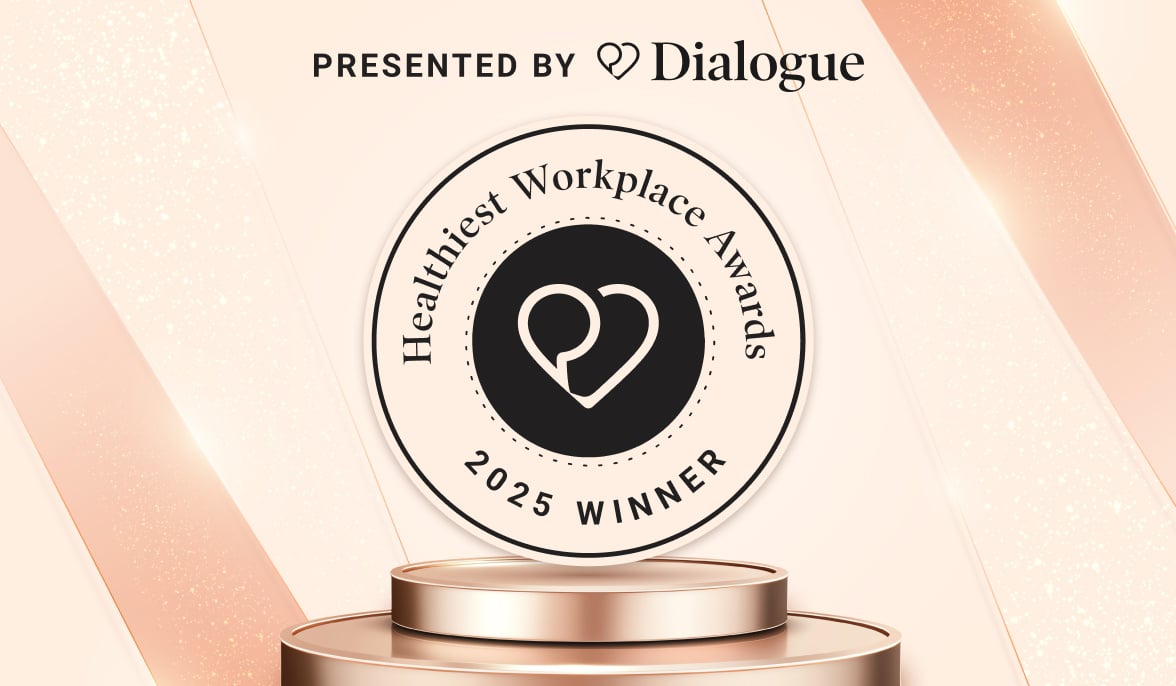To maintain their competitive advantage, organizations must recognize the distinct priorities of Millennial and Gen Z employees. These employees are value-driven, hold companies to higher sustainability standards, and prioritize work-life balance above everything else. As such, offering inclusive and comprehensive benefits is not just essential for retaining talent, but also for boosting productivity, engagement, and diversity.
A key area where organizations can make a tangible difference is parental leave. With 80% of Canadian parents taking parental leave, there’s an opportunity for employers to make a positive impact during this critical life stage. But how can companies build programs that yield positive outcomes?

It starts with culture
Culture plays a pivotal role in shaping how employees perceive, adopt, and experience parental leave policies. Flexibility, inclusivity, empathy, and collaboration must be prioritized to be effective. This ensures that these benefits work for all employees, regardless of gender, role, or seniority. And when workplace culture is supportive, employees feel empowered to take advantage of parental leave without fear of stigma, negative career consequences, or judgment from colleagues and leaders.

It’s enabled by flexibility
Schedule
While reduced hours, job-sharing, and compressed workweeks are growing in popularity, flextime remains the most valued option for parents. The ability to leave work earlier to accommodate limited daycare and school hours, coupled with the option to work later when kids are asleep, is especially useful. Plus, offering flexible hours is one of the most effective ways to boost diversity in management roles!
Location
The option to work from home regularly is a big part of flexibility. With the growing trend of hybrid work, this benefit is no longer a market differentiator, but a necessity for attracting and retaining parents.
Transition
Flexibility before and after parental leave can make the transition much smoother. For example, allowing employees to work from home or reduce their workload in the final weeks offers much-needed relief. After leave, a personalized re-onboarding plan—with options like a gradual return and flexible hours—can help reduce stress and ease the adjustment.

It’s sustained by supportive managers and networks
Managers are culture carriers, making their support essential in an employee’s parenthood journey. It creates a safe space for employees to share their plans without fear of judgment, and to foster longer-term retention.

It’s supported by inclusive benefits
Benefits that support the diverse needs of all employees are not just nice-to-haves. Flexible, comprehensive benefits that adapt to changing family needs help create an inclusive workplace where every employee feels valued, supported, and recognized. Some examples include:

Health and well-being support, like Dialogue’s services, can equip parents with 24/7 access to primary care, mental health care, and work-life assistance, all delivered by dedicated practitioners, along with virtual self-serve resources. This support helps parents navigate the challenges of parenting while reinforcing their connection to an organization that genuinely cares.
Recommendations for employers
- Foster a supportive culture that actively promotes inclusivity, empathy, and collaboration to ensure employees feel safe taking parental leave without fear of unspoken consequences.
- Embed flexibility into your policies to clearly define what flexibility means to your company.
- Empower your managers by clarifying their responsibilities during an employee’s parental journey and guiding them to deliver a personalized experience.
- Create opportunities for employees to connect with peers through forums and programs, such as ERG and buddy systems.
- Offer inclusive and virtual benefits, such as Dialogue’s programs, that support diverse family needs and provide accessible care.
Discover how Dialogue’s virtual care benefits can elevate parenthood for your team.
Sources:
- Deloitte. 2023. Making waves: How Gen Zs and millennials are prioritizing—and driving—change in the workplace.
- HBR. 2022. The Surprising Benefits of Work/Life Support.
- Statistics Canada. 2021. Parental leaves in Canada.
- Université du Québec à Rimouski. 2024. L’influence de la culture organisationnelle quant à la prise du congé parental par les pères au Québec.
- Deloitte. 2016. Empowering parental leaves.





 Canada (EN)
Canada (EN)
 Global (EN)
Global (EN)









